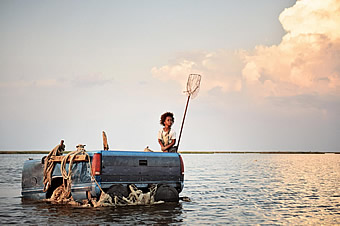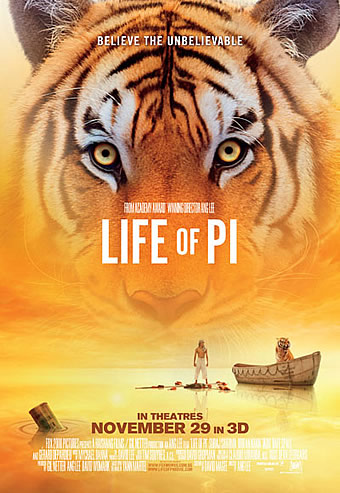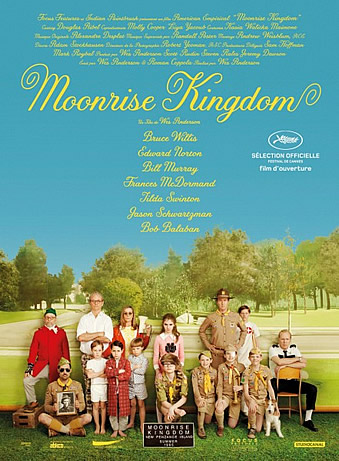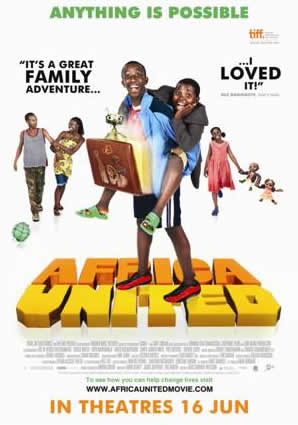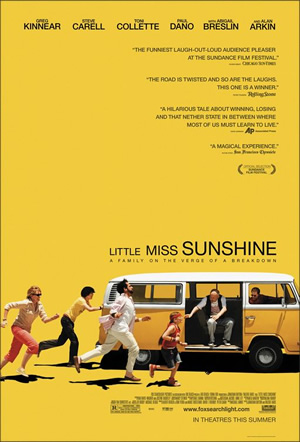BEASTS OF THE SOUTHERN WILD (2012)
Genre: Drama/Fantasy
Director: Benh Zeitlin
Cast: Quvenzhane Wallis, Dwight Henry, Levy Easterly, Jonshel Alexander, Marilyn Barbarin, Lowell Landes, Jimmy Lee Moore, Hannah Holby, Kaliana Brower
Runtime: 1 hr 33 mins
Rating: PG13 (Some Coarse Language and Disturbing Scenes)
Released By: Filmgarde
Official Website: http://www.beastsofthesouthernwild.com/
Opening Day: 31 January 2013
Synopsis: In a forgotten but defiant bayou community cut off from the rest of the world by a sprawling levee, a six-year-old girl exists on the brink of orphanhood. Buoyed by her childish optimism and extraordinary imagination, she believes that the natural world is in balance with the universe until a fierce storm changes her reality. Desperate to repair the structure of her world in order to save her ailing father and sinking home, this tiny hero must learn to survive unstoppable catastrophes of epic proportions.
Movie Review:
Cross ‘Where the Wild Things Are’ with the sensibilities of Terrence Malick and you’ll get Queens-born filmmaker Benh Zeitlin’s impressive directorial debut ‘Beasts of the Southern Wild’, which has been garnering critical acclaim since making its rounds along the film festival circuit. It’s not hard to understand why once the first hypnotic frame of the film comes into view – in adapting Lucy Alibar’s one-act play ‘Juicy and Delicious’, director and co-writer Zeitlin has created a poetic allegory that is meditative and mesmerising.
The setting of this story is South Louisiana’s bayou country, which has been cut off from New Orleans and – for that matter – the rest of the civilised world by an enormous levee. There, a small number of impoverished locals form a tightly-knit self-sufficient community where they spend their days fishing, scavenging and drinking. Because their land they call the Bathtub is no more than swamp territory, the community is especially badly hit by a devastating storm that has echoes of Hurricane Katrina, which destroys their ramshackle homes and sweeps away their precious possessions.
A six-year-old girl named Hushpuppy (Quvenzhané Wallis) is the lead protagonist of the story, fiercely independent and keenly sensitive to the world around her. Motherless and in the care of a harsh and seemingly unsympathetic father Wink (Dwight Henry), she is – more than most other children who have the privilege of the care and love of both parents – always wondering about her place in the universe. Her answer would however come through a test akin to a baptism of fire.
Just before the crippling storm, Hushpuppy finds out that her father is dying – so while he tries to teach her in the days after how to survive on her own, she finds herself increasingly faced with the responsibility of taking care of him. Thankfully, she has the support of a resilient community bound by poverty and sense of place, which would rather stay than be evacuated to some temporary emergency shelter - no matter that the Bathtub has been left a ruined, soggy and poisoned mess.
Zeitlin juxtaposes Hushpuppy’s coming-of-age story with a riveting portrayal of the tenacity of a group of residents cut off and ignored by the rest of the civilised world. Instead of a densely layered narrative, he lets his film thrive on the sensory, relying on the Louisiana backwoods where the movie was shot to hook his viewer into an otherwise unfamiliar world. This is not civilisation or primordiality we are accustomed to; but an inimitable existence of the latter in tension with the former.
That experience is further enhanced with Alex DiGerlando’s inventive production design – in particular, the use of an empty truck bed as a raft from which Hushpuppy and Wink navigate the floodwaters – as well as Dan Romer and Zeitlin’s evocative score that mixes composition with the natural sounds of the Southern Gothic locale to create an ethereal blend. The effect is simply fascinating to say the least, and Zeitlin’s grasp of the mise en scène absolutely brilliant.
Rather than douse his picture in talkiness, Zeitlin keeps the dialogue simple. After all, less is meant to be understood through speech than through images, so most of the words we hear come from Hushpuppy’s narration and, in line with her ruminative nature, tend to be cryptic. But there is a lyrical quality that draws you in, especially when she expresses her own thoughts about the equilibrium that she and her community share with nature – says Hushpuppy in one of her soliloquies, “I see that I am a little piece of a big, big universe, and that makes it right”.
That also about sums up one of the most significant recurring themes of Zeitlin’s film, which is one of the key tenets of New Age spiritualism – the idea of connectedness within objects and events in the natural world. Portrayed through the eyes of an awakening mind (i.e. that of Hushpuppy), Zeitlin makes an empathetic statement about mankind’s general callousness towards the environment - and as images of melting glaciers are interspersed with dead and dying animals in the Bathtub’s toxic waters following the storm, we are meant to reflect on Hushpuppy’s notion that ‘the entire universe depends on everything fitting together right’, such that ‘if one piece busts, even the smallest piece, the whole universe will get busted’.
Some bits of magic realism are also thrown in for good measure, depicted in the folk religion that the residents of the Bathtub subscribe to – that prehistoric life existed in the form of giant carnivorous creatures with huge tusks known as aurochs. Hushpuppy imagines that these aurochs have been released from their Ice Age prison through global warming, and in the film’s most fantastical sequence, meets these fearsome creatures face to face. It immediately recalls Maurice Sendak’s book, and is the most literal evidence that Zeitlin had drawn inspiration from it.
So many competing elements are held together by one elemental performance by newcomer Quvenzhané Wallis. She holds every frame with charismatic poise, combining both fearlessness and innocence in equal measure for a truly amazing act. Chosen for the part from over 4,000 girls auditioned, she is truly a revelation, defining the role in a way that will leave you speechless in awe. Next to Wallis, Henry is also impressive in a challenging role as her character’s uncompromising father that requires nuance in order that we do not grow to hate.
Pulling a cast out of mostly locals is no doubt a risk, but one that truly pays off for a movie that requires a delicate balance between reality and fiction to come alive. Fortunately with the aid of Ben Richardson’s lively cinematography, Zeitlin brings to vivid life a world that few would likely be familiar with and yet through vibrant images, music, language and characters becomes – at least for the duration of the movie – a world that we fully inhabit. It is a spellbinding fable, a stunning debut for Zeitlin that, in this reviewer’s opinion, is even more masterful than Malick’s self-indulgent ‘The Tree of Life’ in its exploration of nature, mankind and civilisation.
Movie Rating:




(As mesmerising as it is meditative, this modern-day fable of a community living outside the civilised world is a poetic and evocative experience that comes alive with its own distinctive rhythm)
Review by Gabriel Chong
You might also like:
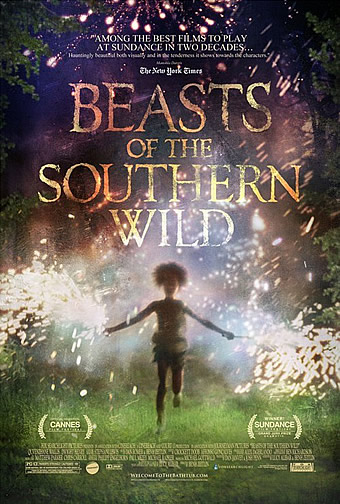
Movie Stills
